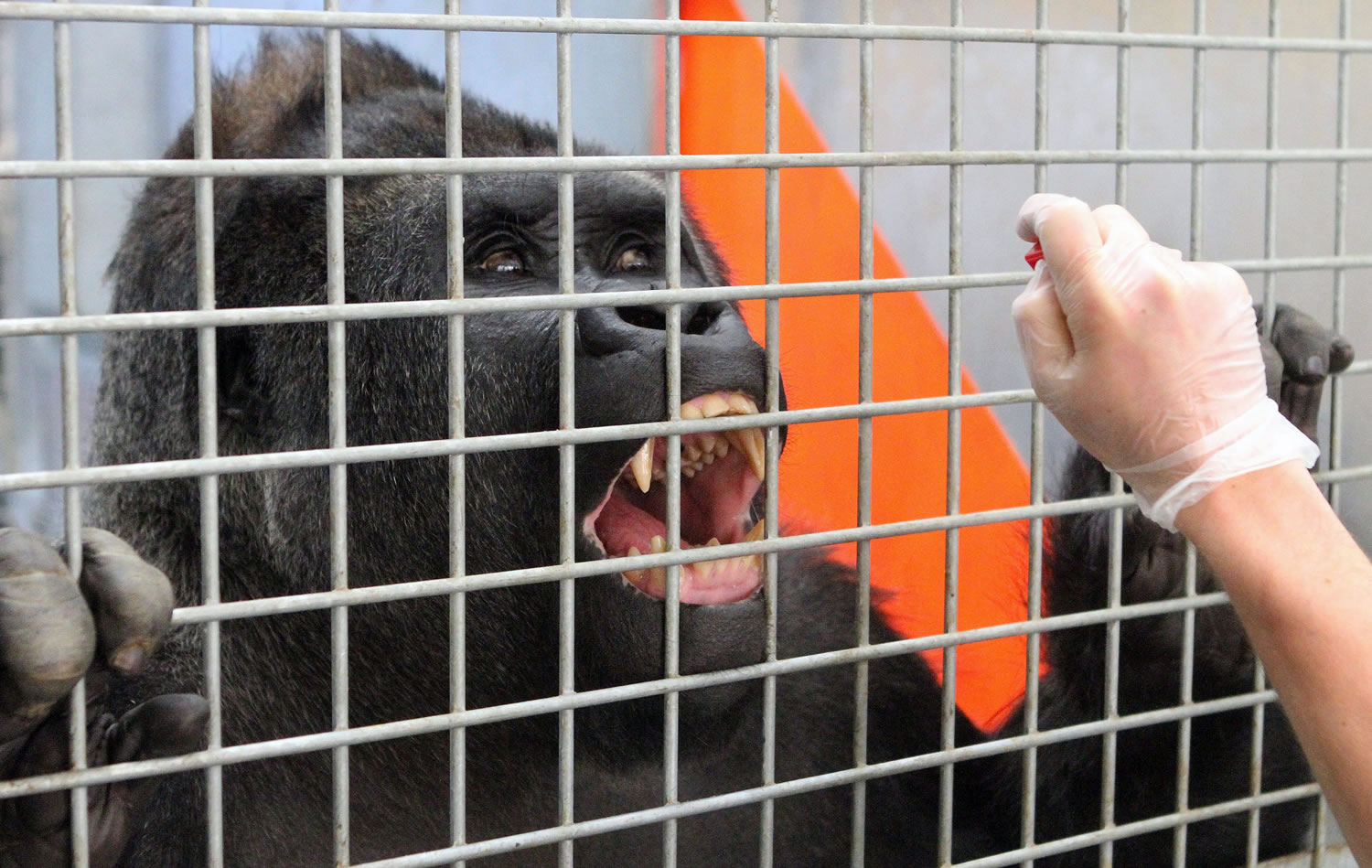ATLANTA — In the green woods of the North Georgia mountains, behind a computer-controlled electrified fence, an idiosyncratic millionaire keeps a menagerie of huge, powerful creatures.
It’s not exactly Jurassic Park. But it’s close.
Certainly the giants here are awe-inspiring. They include Kidogo, who, on a recent Tuesday, is reclining in the sunshine, chewing on a stick, his powerfully muscled 386-pound frame looking like the Incredible Hulk in a black fur coat.
Squatting next to Kidogo is Jasiri, who tickles his friend, then borrows the stick, which they share for a moment, both chewing quietly.
Though we know that these Western lowland gorillas could snap us in half like a twig, they appear, in this scene, as harmless and playful as puppies.
They are at ease, suggests their keeper Charles Horton, because they are living the life of Riley.
“It’s the Gorilla Hilton up here,” Horton says.
That is exactly as it was planned. Ten years ago, software entrepreneur and British expatriate Steuart Dewar and his then-wife Jane Dewar opened Gorilla Haven as a retirement village for male gorillas on 300-plus acres of Fannin County forest, near Morganton, Ga., which is about two hours north of Atlanta. They built a 14-foot concrete wall that enclosed 8 acres of green space, and high-tech “dorms” to house the gorillas at night.
With state-of-the-art veterinary facilities and trained professionals overseeing the animals, the refuge earned approval from the Association of Zoos and Aquariums. The cost: about $6 million.
Then the economy tanked, which hurt potential support from zoos, as well as Steuart Dewar’s revenues. One of their gorillas, Oliver, was transferred to the Columbus, Ohio, zoo in 2009, leaving them with a single resident, the aging and ailing Joe. And the Dewars went through a contentious divorce.
Hopes for the refuge dimmed. Then Zoo Atlanta began to take an interest in the refuge as a possible solution for the ongoing challenge of the male gorilla.
Western lowland gorillas live in social units comprised of one adult male (a silverback), several females and their offspring. When young males grow up they are forced out of their clan by the dominant male, with the hope that they will start their own social units. But since captive breeding programs have produced as many males as females (or even, during recent years, slightly more males than females), that means many males will not get lucky.
Zoos have tried to create bachelor groups so that adult males aren’t forced to live in solitary confinement. But for a facility such as Zoo Atlanta with a collection of 21 gorillas, assembling compatible groups in the smallish 3 acres available is tricky.
When the teenaged Jasiri and Kidogo started beating up on the younger Mbeli in one of Zoo Atlanta’s bachelor groups, the newly renamed Dewar Wildlife Trust offered a safety valve. The two older apes were moved to the trust from Atlanta in January of 2012.
Now the Dewar Wildlife Trust is opening the facility for tours, creating some revenue to offset operation expenses. A youth group recently enjoyed an overnight at the facility.
The gorillas enjoy the tours, said Dewar, as he and his wife, JoBeth Dewar, watch Fellows work on training with Kidogo (also called Willie B. Jr.). “They like being interactive.”



